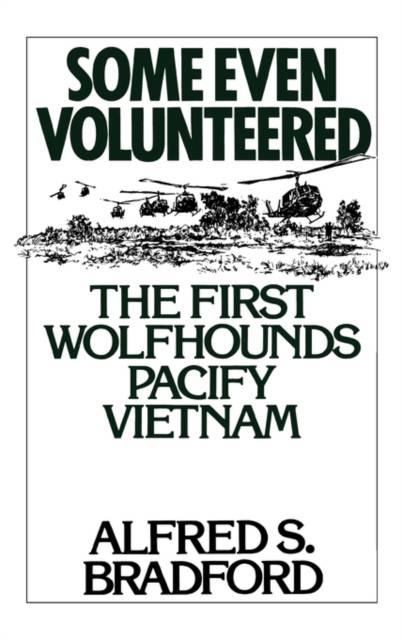
- Retrait gratuit dans votre magasin Club
- 7.000.000 titres dans notre catalogue
- Payer en toute sécurité
- Toujours un magasin près de chez vous
- Retrait gratuit dans votre magasin Club
- 7.000.0000 titres dans notre catalogue
- Payer en toute sécurité
- Toujours un magasin près de chez vous
127,45 €
+ 254 points
Description
I was hooked by the unusual style and, moreso, by the unusual approach to the familiar material . . . Articulate, sensitive, and intelligent . . . an unusually readable and persuasive narrative. Robert W. Lewis North Dakota Quarterly
When in 1968 an American rifle battalion known as the First Wolfhounds landed near Dau Tieng, a rest area controlled by the North Vietnamese Army, they expected to interdict the NVA supply line there within three days. Instead, the soldiers found a prohibitive network of NVA troops, headquarters, hospitals, supplies, and local support for the NVA. It seemed impossible, even for the Wolfhounds, famed for their numbers and fighting strength. In the vivid prose of a mission survivor, Some Even Volunteered chronicles these brave soldiers' daily, deadly contact with the NVA, their attempts to win the villagers' trust, and how they struggled to accept and survive their circumstances. Eight months later, the Wolfhounds succeeded--destroying, in the process, an NVA unit of their own size. Alfred Bradford's sardonic voice is compelling. This narrative is witty, sometimes hilarious, and always captivating. Bradford--now a history professor--also provides one of the most insightful discussions ever written of Vietnam's assumed position in military history. Some Even Volunteered provides a marvelous description and a succinct evaluation of the life and the achievement of the American soldier in Vietnam trying to win the hearts and minds of the Vietnamese. In a style reminiscent of Michael Herr in Dispatches but still distinctly his own, Bradford relates the story of the First Battalion of the 27th Infantry Regiment (First Wolfhounds) of the 25th Infantry Division as they pacified the district of Tri Tam. The First Battalion--which had the highest body count of any rifle battalion in Vietnam--was air-lifted into an NVA rest area south of Dau Tieng (IIId Brigade basecamp) in the district of Tri Tam on 24 October 1968. They had been ordered to interdict the NVA supply line that stretched from the Ho Chi Minh trail in Cambodia through Dau Tieng to Saigon. They were expected to complete their mission in three days, but they uncovered such an extensive network of headquarters, hospitals, supply, troop concentrations and local support that the mission was extended to a week, then to a month, and finally, to eight months. Eight months later, the Wolfhounds had succeeded. Their fire support base was assaulted three times, their Brigade base twice. They established four independent forts, ran missions throughout the Third Brigade Area of Operations, and accepted the surrender of dozens of Viet Cong and NVA. In effect, they had destroyed an NVA unit of their own size. In vivid, staccato prose, Bradford delivers a first-rate narrative. In addition, the last chapter, entitled, The Will of the People, provides the reader with one of the best discussions ever written of Vietnam's assumed position in military history.Spécifications
Parties prenantes
- Auteur(s) :
- Editeur:
Contenu
- Nombre de pages :
- 192
- Langue:
- Anglais
Caractéristiques
- EAN:
- 9780275947859
- Date de parution :
- 30-10-94
- Format:
- Livre relié
- Format numérique:
- Genaaid
- Dimensions :
- 163 mm x 244 mm
- Poids :
- 439 g

Les avis
Nous publions uniquement les avis qui respectent les conditions requises. Consultez nos conditions pour les avis.






